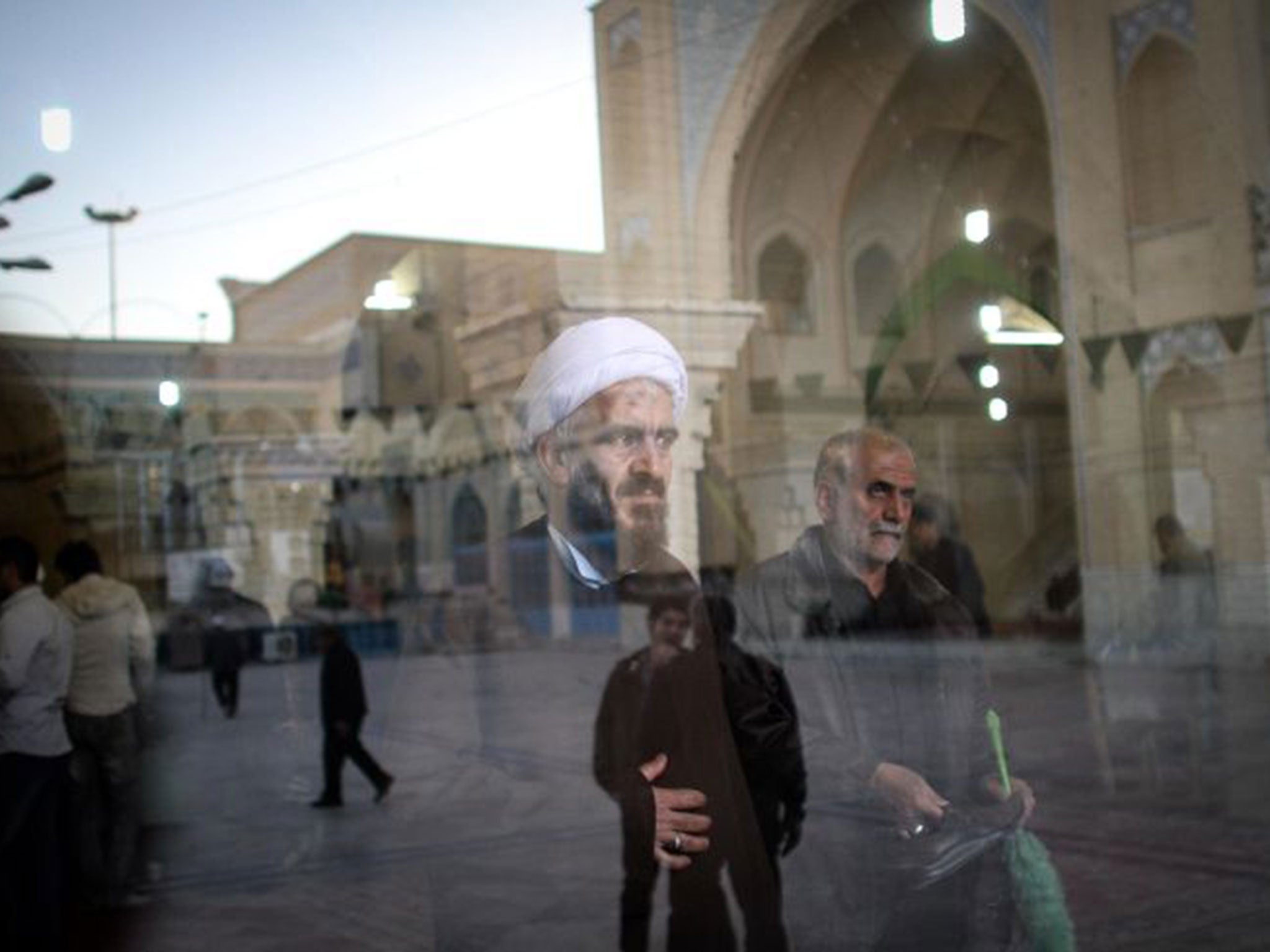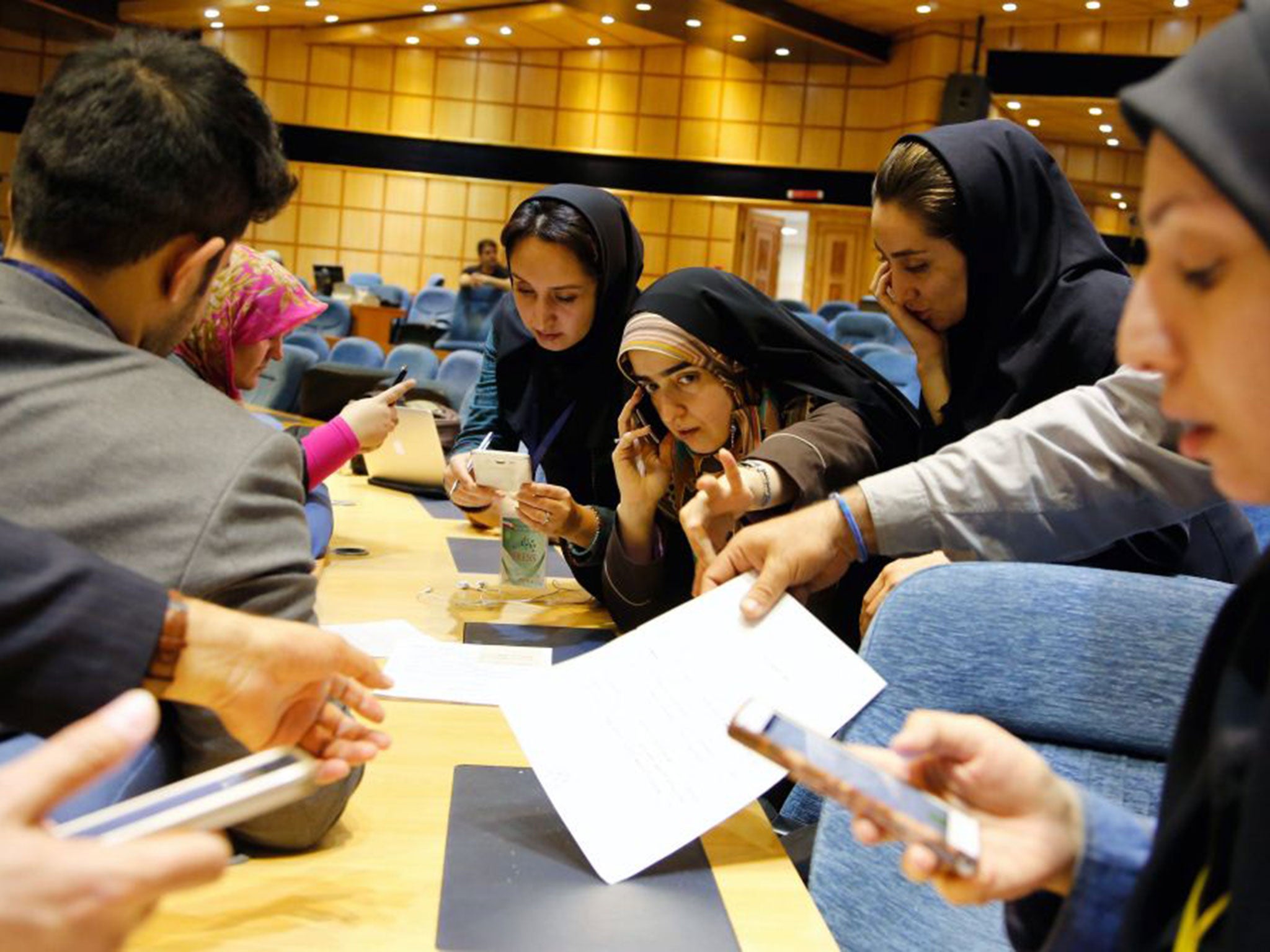Iran elections: Inside the city that wants no reform, despite moderates' stunning victory
After Iran’s vote for change, with moderate conservatives and reformists combining to squeeze out hardliners in much of the country, Kim Sengupta reports from Qom, the ‘Shia Vatican’, where many feel the Islamic Republic is at risk

The stunning victory of the reformists in the Iranian elections has been the source of celebrations in the capital, Tehran, and much of the rest of the country. There is hope of a freer and more prosperous future and excitement that Iran will open itself again to the outside world.
The mood in Qom, however, is very different. Here, in Iran’s Shia heartland, the results are seen not as a harbinger of better days, but a grim sign that the very legacy of Ayatollah Ruhollah Khomeini is being betrayed.
While one reformist paper heralded the results of the election “a turning point in the history” of the country, fundamentalists in this city were discussing how they could counter moves which, in their eyes, would endanger the Islamic Republic. Shrouded by religious and moral certainty, the hardliners, who had vehemently opposed President Hassan Rouhani’s nuclear deal with world powers, simply had not seen the defeat coming.
The sermon by Qom’s leader of Friday prayers, Hujjat al-Islam Sayyed Mohammad Saidi, on the day of the elections last week showed no understanding that there was a desire for change.
It focused on warning those who formed the new Majlis, Iran’s parliament, to guard against the machinations of enemies, the “greedy” US and the “wily fox” Britain and ensure that they were not seduced by false modern thinking inimical to Islam.

The large congregation at the Holy Shrine of Lady Fatimah al-Masumah were fervent in their approval of the address, taking a vastly different view from that held by the majority 80 miles to the north in Tehran. Hassan Mohammed Alibehdin, a 23-year-old clerical worker, was adamant. “What you are hearing in Tehran are the loudmouths showing off to foreign journalists, they don’t represent anyone. People in real Iran are the ones here, we respect and follow the path laid down by Ayatollah Khomeini and we must protect our values.”
As official results showed the reformists and moderates had taken the most seats in parliament, Mr Alibehdin was left perplexed and suspicious by the turn of events. “The results are very strange, the numbers are too much for the reformists, a lot of us think there should be an investigation,” he said. Reformists took 85 seats and the moderate conservatives, who support the nuclear deal, took 73. The hardliners took just 68 seats, a loss of 44.

Mr Alibehdin’s companions at the café near Bastani Square, where photographs of Leonardo DiCaprio, Al Pacino and Charlie Chaplin share the walls with those of the Ayatollahs Khomeini and Khamenei, were divided on what went wrong. One, Ghasem Housseni, 33, reminded the others of the rumours that foreigners wanted to get rid of the most senior hardline leaders, Mohammed Yazdi, Mohammed Taghi Mesbah-Yazdi and Ahmad Jannati. “And we know, they all lost,” he said. Mr Jannati had, in fact, scraped in, 15th in a list of 16, but there were murmurs of agreement at the general proposition around the table.
There is also acknowledgment that the Principalists, as the hardliners call themselves, had failed to get their message across nationally.
“A team has begun to look at what went wrong,” said Seyyed Ali Pour-Tabatabaei, an analyst and journalist. “The Principalists have done better in other parts of the country compared to Tehran. They also know a reformist Majlis before, with President Mohammad Khatami, failed to deliver what the people wanted and Mahmoud Ahmedinejad came in. That can happen again. But they face problems in the Majlis in the immediate future, and know they lost Tehran. They cannot ignore that.”
The capital and the rest of Iran, with a population of 80 million, can’t ignore Qom, the “Shia Vatican”, with its population of one million, either. Power resides here: the Guardian Council, including many of the City’s clergy, barred Hassan Khomeini, the grandson of the Ayatollah and a reformist, from standing at the elections.
Ali Larijani is another in disfavour in Qom, his home constituency, among hardliners. The conservative parliamentary speaker had backed President Rouhani over the nuclear agreement and supported the reformists.
Mr Larijani’s stance cost him votes and he has slipped to second in the city list. But he wanted to stress the reformists and moderate conservatives have struck the right chord. “People have taken a responsible decision and this must be respected. We must not turn the massive turnout into a matter of dispute.”
Some critics claimed that Mr Larijani’s loss of votes was due to him neglecting his constituency. But, for many hardline clerics, the problem goes much deeper than that and it is something which is now central to Iranian politics.
Hujjat al-Islam Hamid Maleki, the head of the powerful fundamentalist Qom Elmiyeh Madrasa, said: “There are those like him and President Rouhani who believe politics can take place apart from Islam. Ayatollah Khomeini gave the correct interpretation of Islam, which stated Islam is in every part of life including politics. There cannot be a separation between the two, and there cannot be a compromise. This is what the people of Iran must consider very carefully when we decide what happens next.”
Join our commenting forum
Join thought-provoking conversations, follow other Independent readers and see their replies
Comments
Bookmark popover
Removed from bookmarks